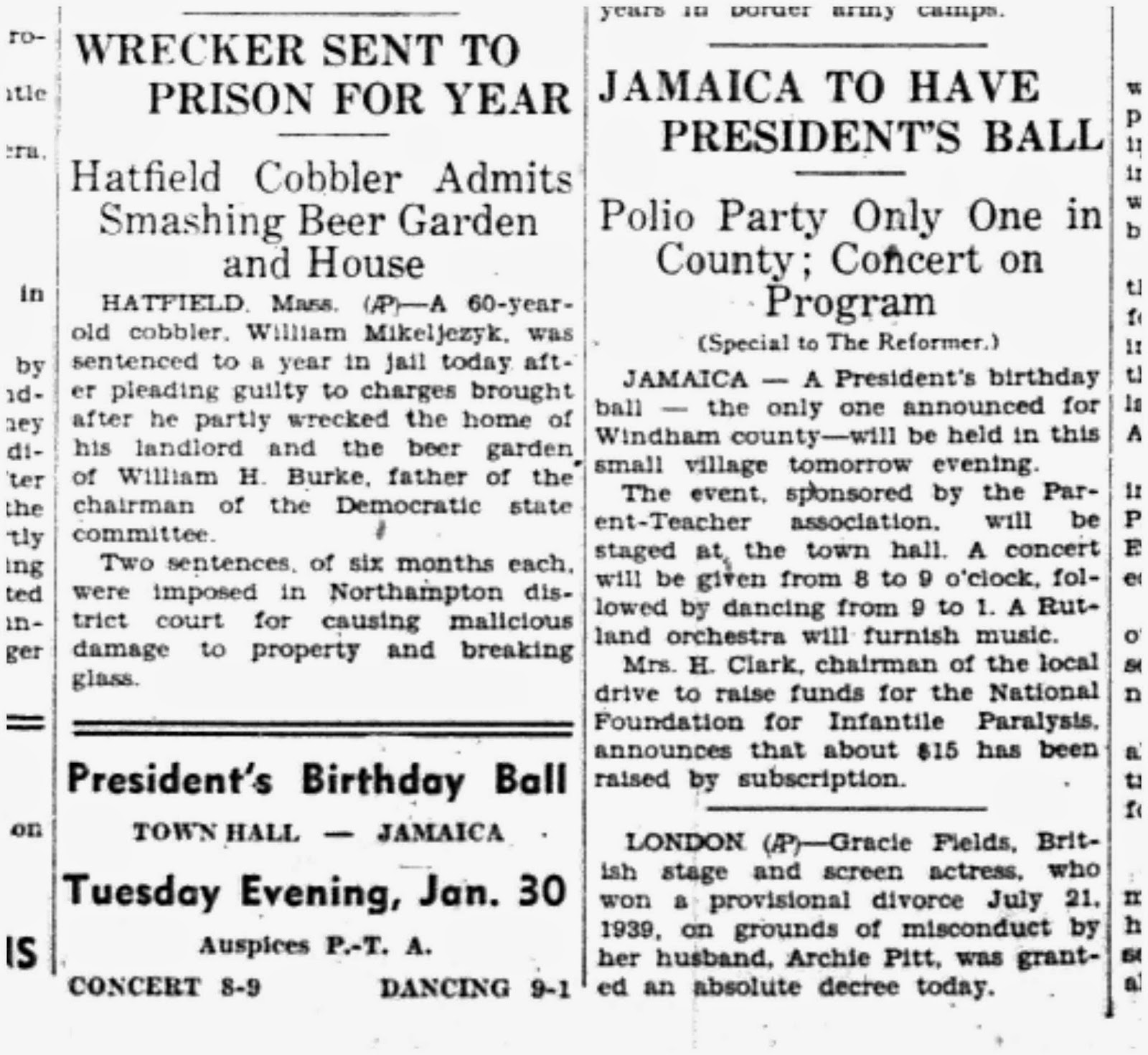Although most Americans knew Roosevelt had polio,
pictures of him in his wheelchair were not made public.
After Roosevelt's election to the Presidency of the United States, a public relations guy hoping to curry political favor suggested a series of fundraising balls be held every year on the President's birthday. The first Birthday Balls were held in locations across the country in 1934, one of the worst years of the Depression. They raised over a million dollars. The balls became an annual event. Roosevelt set up the National Foundation for Infantile Paralysis to fund the spa and a search for a cure. He asked people to pitch in what they could - why, one school child had even sent in a dime; if everyone could just send a dime...
Eddie Cantor was an old school entertainer who came up through vaudeville, became a Broadway star in the Ziegfeld Follies, starred in several movies, and then moved into radio. During one of his weekly broadcasts, he asked his audience to chip in to the President's cause. He told people that he wanted to see a march of dimes from every town in America headed to the White House (not quite the way he said it, but the phrase was there and it stuck).
 |
| Shirley Temple and Eddie Cantor helped raise funds for the cause. |
Roosevelt died in April 1945, a few weeks before the Allies took Berlin. Moses didn't make it to the promised land. That January 30th, the Birthday Balls had brought in 18 million dollars. In wartime. The United States Senate voted to put Roosevelt's image on the dime in tribute. In 1955, Jonas Salk introduced a polio vaccine, made possible by research financed by the National Foundation for Infantile Paralysis, which would later be renamed The March of Dimes. My left arm still has the scar left by the vaccination I received in 1955, although like polio, it has almost faded away. Sadly, over the last few years, polio has reemerged in Afghanistan, Syria, and Iraq. Cases of a polio like disease have recently been reported in California. Rumor has it that the children involved were not inoculated.
 |
| A Glenn Miller hit of 1942. |
The record above is one of two songs played during my radio show last week which was not around in January 1940. Last week's show featured a Chesterfield Glenn Miller Moonlight Serenade, as heard on January 30th, 1940 - President Roosevelt's birthday.
Brattleboro didn't have a Birthday Ball in 1940. Strongly Republican, resistance to the President, a Democrat, could be noticed in an advertisement from 1938 for "Everybody's Birthday Ball". Some of the small villages around the area had no such problems, however.
One of the more interesting things in the paper that week was this letter found in a local attic. It was written by Dr. John Wilson, a schoolteacher from a nearby village. The school he built was round. From where he sat, he could see anyone who approached. As it turns out, Dr. Wilson was most likely the notorious Scottish highwayman Captain Thunderbolt. He's buried in the cemetery at the top of Prospect Street, which was later renamed South Main Street. I guess folks weren't too keen on having the height of their prospects be the local cemetery.
 |
| The Dunham shoe business started here in Brattleboro. One of the offices from their original Main Street factory building is now home to our Community Radio Station's studio. |
I should note that I was very tired by the time my show started, and by the end of the program I had become brain to tongue tired. When I listened to the recording, I heard myself say that FDR was 29 when he contracted polio - he was 39. I also said that the last Birthday Ball raised 8 million when it was 18 million. It's too bad, as I really like doing this show - I like to tell the greater story, and illustrate how a real President and politician used to do things. I hope anyone kind enough to listen enjoys the show.


.jpg)



























